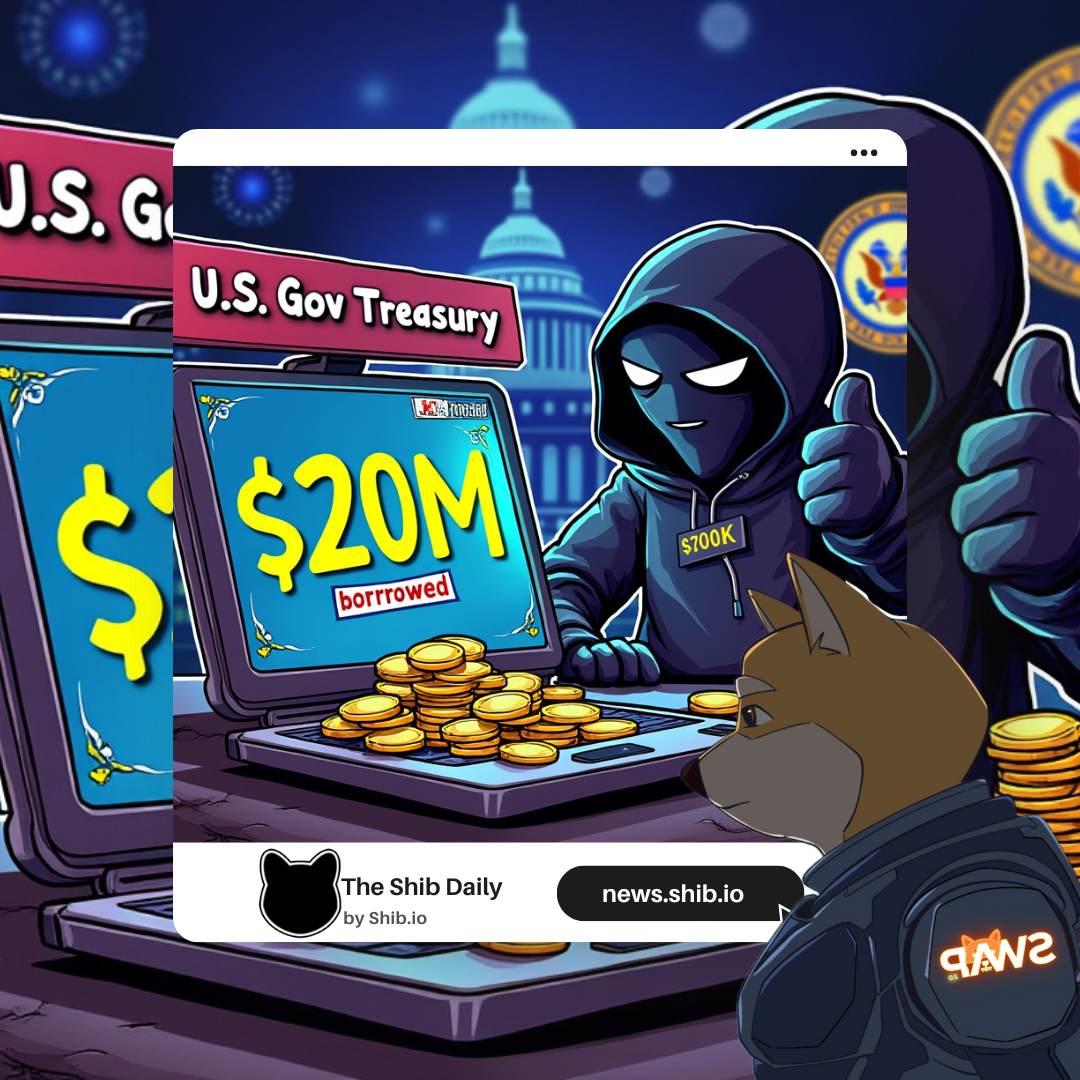Breaking news in crypto-world absurdity: on Thursday, daring hackers made off with around $20 million from a U.S. government-controllеd crypto wallet filled with seized funds from the infamous 2016 Bitfinex hack. Yet, in a plot twist nobody saw coming, the hacker decided to return $19.3 million of it less than 24 hours later. That’s right—the hacker voluntarily put back 88% of the funds. Why? Who knows! Perhaps they experienced a sudden ethical epiphany or decided they weren’t up for the hassle of laundering government crypto. 💁♀️
Hackers’ $700K “Keep-the-Change” Moment 💰
On-chain sleuths at Arkham Intelligence tracked the funds moving in and out of the hacker’s wallets, noting that roughly 2,412 ETH, 7,200 USDC, and a cool $13.2 million in Aave-staked USDC were returned to the government address, “0xc9E.” But here’s the kicker: $700,000 didn’t make the trip back. Some call it a hacker’s “service fee,” others might say it’s just the ultimate “keep the change.” Now, we’re left asking the hard-hitting questions: does the hacker’s leftover “tip” mean they expect a thank-you note from Uncle Sam? Or maybe a government-issued, limited-edition NFT?

Hackers Returned Funds: An Act of Morality or Mischief? 🤔
Let’s talk about motivation. This crypto heist and subsequent return seem… odd, to say the least. Did they feel guilty? Realize the government wallet was less “mission impossible” and more “low-hanging fruit”? Or perhaps they wanted to expose a real issue here—the questionable security of state-contrоlled digital assets. Should the U.S. government really be trusted to safeguard crypto assets if it’s this easy to slip past their defenses?
The hacker’s return adds to a list of recent U.S. government cybersecurity blunders, like the Securities and Exchange Commission’s social media accounts getting hacked. (Don’t worry, they caught the guy! But you still have to wonder about federal security protocols.) It’s hard not to see this as a wake-up call. Just imagine if this were an attack on funds currently in use for criminal cases. Should we, as a society, start demanding iron-clad security from Uncle Sam’s digital vaults?
Related: Kusama Reveals Details Of New AI Product in Recent Livestream
Naturally, the internet exploded with theories. Was it a white hat hacker exposing security flaws? A rogue government employee playing a very expensive prank? Or maybe the hacker accidentally sent the funds to their grandma’s wallet and had to explain where that sudden windfall came from. 👵💰
The US government, meanwhile, is probably feeling a bit like that one friend who leaves their front door unlocked. “Oh, you took my $20 million in crypto? Thanks for bringing it back! Don’t worry about the missing $700k, it was probably just lying around somewhere.” 🤦♀️
This whole saga raises some very important questions. If the U.S. government’s wallet can get hacked—a wallet presumably guarded by more cybersecurity than Fort Knox—what’s stopping hackers from raiding the crypto wallets of ordinary John and Jane Doe? Are our digital assets sitting ducks? Is this a sign that all crypto wallets are fundamentally vulnerable, regardless of how much “security” they boast? And what’s the over/under on how long until your crypto becomes a hacker’s next shopping spree fund? 🛍️😱
Related: Shiba Inu Secures Victory on CoinGecko with New Page Update
This incident is either a government SNAFU or a hacker-led morality play. Either way, the crypto community is left scratching their heads—and maybe laughing a little, too. 😜
Disclaimer: This article was definitely not written by a hacker who returned $19.3 milliоn for fun. Not financial advice; don’t start borrowing government wallets, kids! 🕶️💻












